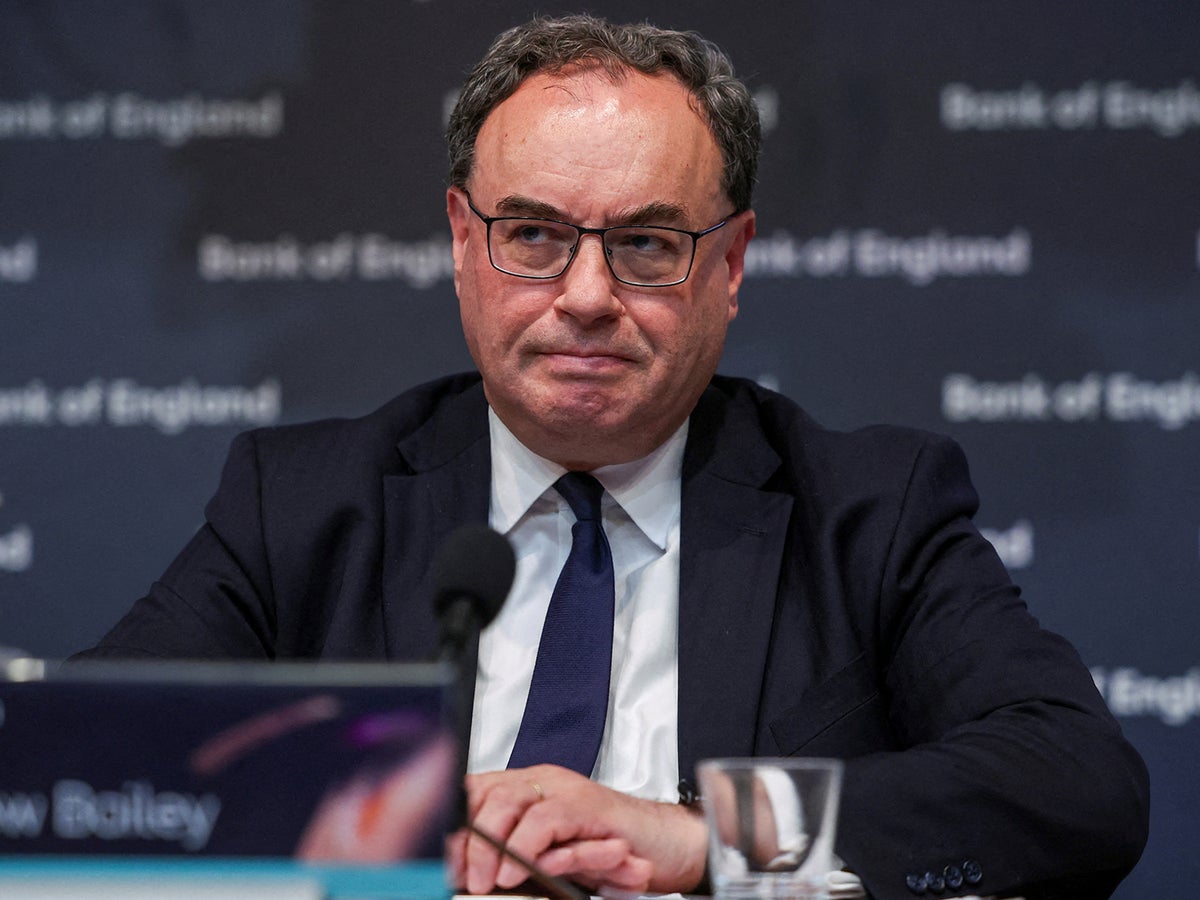
Around a million households on fixed-rate mortgages face a £500 hike in their monthly payments by the end of 2026, the Bank of England has warned.
The average household will see their monthly interest payments go up by about £220 if they are refinancing during the second half of this year and see their rate rise by about 3.25 percentage points.
Around 4.5 million people with a fixed-rate mortgage have seen an increase in their monthly repayments since interest rates started to rise in late 2021, an analysis by the Bank found.
Another 4 million or so households on a typical two-year or five-year fixed deal will likely see their payments go up by the end of 2026.
And as the impact of higher interest rates is starting to hit homeowners who have fixed-rate mortgage deals, typically for two or five years, less than half a million are facing monthly increases of more than £750.
Buy-to-let landlords are also being impacted by higher mortgage rates, which has caused some to sell up or pass on higher costs to renters, the Bank found.
However, a growing number of mortgage holders are either extending the length of their deal or overpaying their mortgage in order to cushion the impact of higher rates, the Bank said.
Around 4.5 million people with a fixed-rate mortgage have seen an increase in their monthly repayments since interest rates started to rise in late 2021, an analysis by the Bank found
(Bank of England)
Bank of England governor Andrew Bailey said there “will be consequences” of higher interest rates on borrowers.
He said there was “no question” the central bank’s policy choices would have an impact on households, but said “we have to do it”.
It came a day after mortgage rates surpassed the peak seen in the wake of Liz Truss’s disastrous mini-Budget last autumn – rising to the highest level since the financial crisis.
Average two-year fixed-rate deals reached 6.66 per cent on Tuesday, according to figures from Moneyfacts, after the Bank of England’s recent interest rate hikes pushed up the cost of borrowing, On Wednesday, that figure hit 6.7 per cent.
That is higher than the 6.65 per cent seen on 20 October 2022 amid the turmoil that followed Ms Truss and Kwasi Kwarteng’s budget and rates now stand at a level not seen since August 2008 at the height of the global financial crisis.
Two UK lenders, Santander and Nationwide Building Society, said customers moving to new deals were being hit by an average increase in payments of around £200 a month.
Deputy governor of the Bank of England Sir Jon Cunliffe highlighted “big differences” between the situation today and during the financial crisis 15 years ago. “The amount of household debt being carried is much lower now than it was at the time of the financial crisis, so households are not over-levered as they were before,” Sir John said.
And he added: “That’s one of the reasons why we think that the proportion of households in distress will be considerably smaller.
“I think it’s clear that inflation hits the poorest off in society worse, and that’s one of the reasons why we need to get it under control.”
Shadow chancellor Rachel Reeves blamed the hit facing households on “the Tory mortgage bombshell”.
“13 years of Tory economic failure stretch far and wide – our broken housing market, insecure economy, soaring prices and broken public services,” she said.
Ms Reeves added that Labour would “build a stronger economy” with “ financial and economic security first”.

